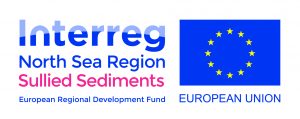Many of the inland waterways in the European Union are under threat due to the introduction of Watch List chemicals that are not currently regulated under the European Water Framework Directive. These chemicals include the so-called “gender benders” such as estradiol and the contraceptive pill, and other pharmaceutical drugs such as triclosan and diclofenac, which have been shown to be harmful to wildlife. These chemicals are introduced to our waterways as a result of our day-to-day activities and through industry. Regardless of the source, they accumulate in the sediments in our rivers and canals.
Water regulators and managing authorities do not always know the levels, the locations or the impacts of these pollutants. Nor do they have the tools to assess sediments confidently and make decisions with regard to managing them. An interdisciplinary partnership of scientific experts, regulators and water managers led by the University of Hull (UK) will develop and test new tools to better assess, treat and prevent contamination from these chemicals. This work will be carried out at nine sites, all of which have a history of sediment problems, in the North Sea Region’s Elbe, Humber and Scheldt river catchments.
The aim of the ‘Sullied Sediments’ project is therefore to enable regulators and water managers to make better decisions with regard to sediment management, removal and disposal, thereby reducing economic costs and the impact of these pollutants on the environment.
The partnership will also endeavour to reduce the amount of chemicals entering the water system by raising awareness about what we, as consumers, are releasing into the environment through the use of common drugs and household products. Part of this includes the involvement of volunteers in a sediment sampling initiative across the region, which will inform and empower these citizens as water stewards and champions.
Project information
| Funding | ERDF by Interreg VB Nordseeregion | |
| Budget | 2.043.413 € | |
| Project duration | 2017 – 2020 | |
| Coordination | University of Hull, Great Britain | |
| Project Lead HAW | Prof. Dr. Susanne Heise | |
| Staff Member | Sonja Faetsch | |
| Project partners | Canal and River Trust (CRT) (UK) | |
| Ecossa (Germany) | ||
| East Riding of Yorkshire Council (UK) | ||
| Environmental Scientifics Group (UK) | ||
| Hamburg Port Authority (Germany) | ||
| Hamburg University of Applied Sciences (Germany) | ||
| Institut Dr Nowak (private lab offering environmental assessment services) (Germany) | ||
| OVAM ((Public Waste Agency of Flanders) (Belgium) | ||
| Radboud University (The Netherlands) | ||
| University of Antwerp (Belgium) | ||
| University of Hull (UK) | ||
| University of Leeds (UK) | ||
| VMM (Flanders Environment Agency) (Belgium) | ||
| Project Website | https://northsearegion.eu/sullied-sediments | |
| Advisory Board | East and North Yorkshire Waterways Partnership (UK) | |
| Elbe Habitat Foundation (Germany) | ||
| Environment Agency (UK) | ||
| Federal Institute of Hydrology (Germany) | ||
| Foundation for Applied Water Research (STOWA) | ||
| Hamburg Ministry of the Environment and Energy (Germany) | ||
| Northumbrian Water (UK) | ||
| River Hull Board (UK) | ||
| Sediment European Network Steering Group (European) | ||
| Thames Water (UK) | ||
| Vlakwa (water research consultancy) (Belgium) | ||
| Yorkshire Water (UK) |

